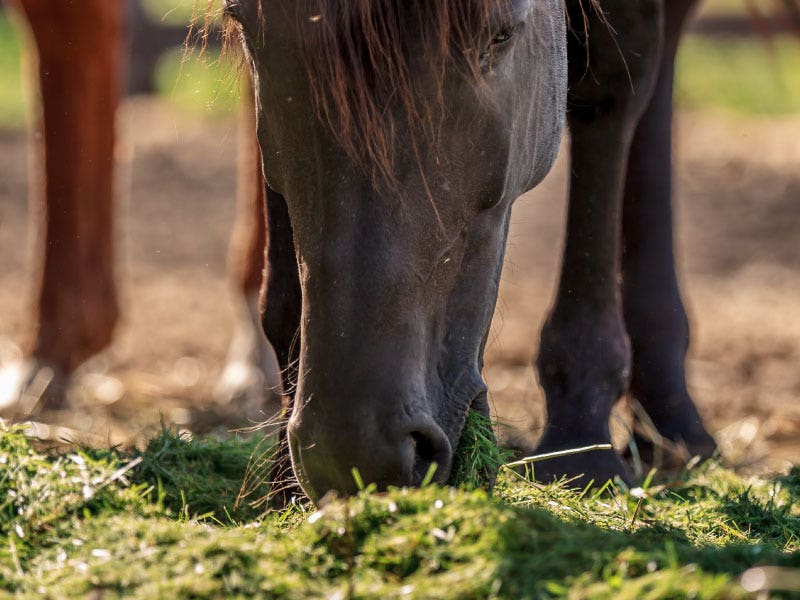

Faecal Worm Egg Count Kits
Effective use of faecal worm egg counts, where a sample of dung is tested, will allow you to monitor your horse’s worm burden. This test detects the presence of adult stages of roundworms. Tests are mainly performed through spring and summer and possibly early autumn.
Faecal egg counts
Faecal egg counts are very useful and easy to do, what do they tell us?
Is worming your horse or group of horses necessary?
Less worming means fewer drugs used.
Fewer drugs will also slow down the inevitable resistance that develops from overuse of the worming products we use.
They do not detect tapeworms and do not detect the encysted (hibernating) stage of the small redworm.
They do not detect bots as these are not worms, but fly larvae.




General guide
Treat for roundworms through the summer and spring as required.
Treat for tapeworms at least twice a year (in autumn and again in spring).
Treat for botfly larvae in autumn.
Treat for encysted small redworms (cyathostomins) in late autumn/winter, using a single dose of moxidectin or five days of fenbendazole.
Kit contents
Contents of a Faecal Worm Egg Count Kit include:
• Prepaid, addressed envelope
• Blue glove
• Clear plastic wallet
• Instruction card


Instructions
Horses must not have been wormed 12 days prior to testing
• Write your HORSE'S NAME, YOUR SURNAME and the DATE on the white strip on the small re-sealable plastic wallet provided.
• Place the glove provided on your hand and pick up a golf ball size of fresh (preferably warm) dung from your horse.
• Turn the glove inside out while holding the dung sample so that it effectively lands up inside the inverted glove, and tie a knot in the glove.
• Place the glove with the sample in it inside the plastic wallet and seal.
• Fill in all the necessary detail inside this leaflet.
• Place the sample and this leaflet in the prepaid envelope provided.
• It is important to send the sample BEFORE the LAST POST of the day, to ensure we receive it while still fresh.
• ONLY POST MONDAY TO THURSDAY to avoid any delays.
• This card will be returned to you and the results will be reported and discussed over the phone, so please provide the most accessible PHONE NUMBER.
• Results will also be emailed or posted so please tick your preference.
Your results
It is important to worm only when necessary, as using fewer drugs will slow down the inevitable resistance that develops from overuse of the worming products.
The worm egg count test done on your horse's dung sample will measure the number of worm eggs in the sample. This then gives us a good indication of how many active egg-laying adult worms are in your horse’s gut.
A count above 200 epg (eggs per gram of faeces) is an indication that worming your horse should be considered.
An egg count below 200 epg is considered sufficiently low not to warrant worming on this particular occasion. This however must be viewed in the context of the horse’s environment, what other horses live and graze on the same fields and what their egg counts are. If the egg count is below 200 epg and depending on the risks they are exposed to we recommend retesting in 4-6 weeks.
Please remember to manage horses as a herd - You may get an egg count that is closer to 1000 epg or up to 3000 epg, these particular results suggest immediate treatment.




